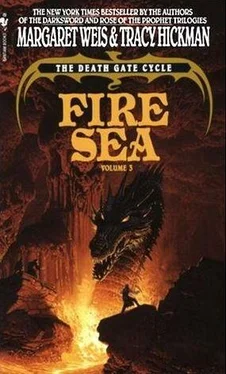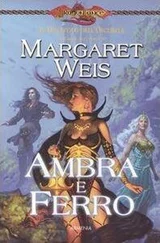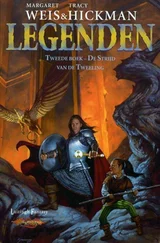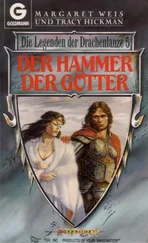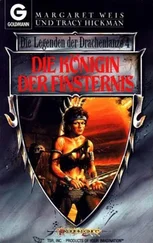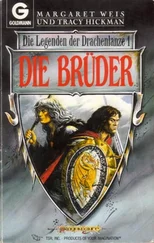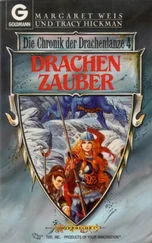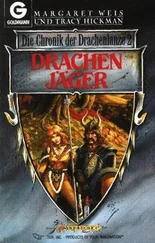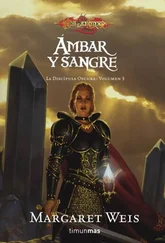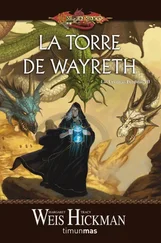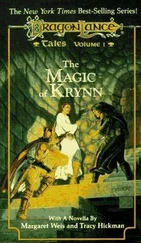Margaret Weis - Fire Sea
Здесь есть возможность читать онлайн «Margaret Weis - Fire Sea» весь текст электронной книги совершенно бесплатно (целиком полную версию без сокращений). В некоторых случаях можно слушать аудио, скачать через торрент в формате fb2 и присутствует краткое содержание. Жанр: Фэнтези, на английском языке. Описание произведения, (предисловие) а так же отзывы посетителей доступны на портале библиотеки ЛибКат.
- Название:Fire Sea
- Автор:
- Жанр:
- Год:неизвестен
- ISBN:нет данных
- Рейтинг книги:4 / 5. Голосов: 1
-
Избранное:Добавить в избранное
- Отзывы:
-
Ваша оценка:
- 80
- 1
- 2
- 3
- 4
- 5
Fire Sea: краткое содержание, описание и аннотация
Предлагаем к чтению аннотацию, описание, краткое содержание или предисловие (зависит от того, что написал сам автор книги «Fire Sea»). Если вы не нашли необходимую информацию о книге — напишите в комментариях, мы постараемся отыскать её.
Fire Sea — читать онлайн бесплатно полную книгу (весь текст) целиком
Ниже представлен текст книги, разбитый по страницам. Система сохранения места последней прочитанной страницы, позволяет с удобством читать онлайн бесплатно книгу «Fire Sea», без необходимости каждый раз заново искать на чём Вы остановились. Поставьте закладку, и сможете в любой момент перейти на страницу, на которой закончили чтение.
Интервал:
Закладка:
Fire Sea
Margaret Weis and Tracy Hickman
Prologue
I’ve traveled through Death’s Gate four times, yet I don’t remember anything about the journey. Each time I’ve entered the Gate, I’ve been unconscious. The first trip I made was to the world of Arianus, there and back—a trip that was nearly my last. [1] The Lord of the Nexus underestimated the magical forces that control Death’s Gate and failed to provide Haplo with suitable protection for the journey. The fttryn crash-landed and was rescued by the Geg Limbeck (see Dragon Wing, vol. 1 of The Death Gate Cycle).
On my return trip, I acquired a dragonship, built by the elves of Arianus. It’s far stronger and much more suitable than my first ship. I enhanced its magic and brought this ship back with me to the Nexus, where My Lord and I worked diligently to further increase the magic protecting the ship. Runes of power cover almost every inch of its surface.
I flew this ship to my next assignment, the world of Pryan. Once again, I sailed through Death’s Gate. Once again, I lost consciousness. I awakened to find myself in a realm where there is no darkness, only endless light.
I performed my task satisfactorily on Pryan, at least as far as My lord was concerned. He was pleased with my work.
I was not. [2] Haplo characteristically makes no further mention of what he considers to be his failure on Pryan, but it may relate to the fact that he was very nearly killed by of giants whose magic proved far stronger than the Patryn’s (see Elven , vol. 2 of The Death Gate Cycle).
On leaving Pryan, I endeavored to remain conscious, to see the Gate and experience it. The magic of my ship protects it and me to the extent that we both arrive at our destination completely safe and undamaged. Why, then, was I blacking out? My Lord hinted that it must be a weakness in me, a lack of mental discipline. I resolved not to give way. To my chagrin, I remembered nothing.
One moment I was awake, looking forward to entering the small dark hole that seemed far too tiny to contain my ship. The next moment I was safely in the Nexus.
It is important that we learn as much as possible about the journey through Death’s Gate. We will be transporting armies of Patryns, who must arrive on these worlds prepared to fight and conquer. My Lord has given the matter considerable study, poring over the texts of the Sartan, our ancient enemy, who built Death’s Gate and the worlds to which it leads. He has just now informed me, on the eve of my journey to the world of Abarrach, that he has made a discovery.
I have this moment returned from meeting with My Lord. I confess that I am disappointed. I mean this as no detriment to My Lord—a man I revere above all others in this universe—but his explanation of Death’s Gate makes little sense. How can a place exist and yet not exist? How can it have substance and be ephemeral? How does it measure time marching ahead going backward? How can its light be so bright that I am plunged into darkness?
My Lord suggests that the Death’s Gate was never meant to be traversed! He can’t tell what its function is—or was. Its purpose may have been nothing more than to provide an escape route from a dying universe. I disagree. I have discovered that the Sartan intended there to be some type of communication between worlds. This communication was, for some reason, not established. And the only connection I have found between worlds is Death’s Gate.
All the more reason that I must remain conscious on my next journey. My Lord has suggested to me how to discipline myself to achieve my goal. He warns me, however, that the risk is extremely great.
I won’t lose my life; my ship’s magic protects me from harm.
But I could lose my mind. [3] Haplo, Abarrach, World of Stone, vol. 4 of Death Gate journals. Baltazar, Remembrances of My Homeland, a journal chronicling the last years of Kairn Telest kept by the necromancer to the king.
1
“Father, we have no choice. Yesterday, another child died. The day before, his grandmother. The cold grows more bitter, every day. Yet,” his son pauses, “I’m not certain it is the cold, so much, as the darkness, Father. The cold is killing their bodies, but it is the darkness that is killing their spirit. Baltazar is right. We must leave now, while we still have strength enough to make the journey.”
Standing outside in the dark hallway, I listen, observe, and wait for the king’s reply.
But the old man does not immediately respond. He sits on a throne of gold, decorated with diamonds large as a man’s fist, raised up on a dais overlooking a huge hall made of polished marble. He can see very little of the hall. Most of it is lost in shadow. A gas lamp, sputtering and hissing on the floor at his feet, gives off only a dim and feeble light.
Shivering, the old king hunches his shoulders deeper into the fur robes he has piled over and around him. He slides himself nearer the faint edge of the throne, nearer the gas lamp, although he knows he will extract no warmth from the flickering flame. I believe it is the Comfort of the light he seeks. His son is right. The darkness is killing us.
“Once there was a time,” the old king says, “when the lights in the palace burned all night long. We danced all night long. We’d grow too hot, with the dancing, and we’d run outside the palace walls, run out into the streets beneath the cavern ceiling where it was cool, and we’d throw ourselves into the soft grass and laugh and laugh.” He paused. “Your mother loved to dance.”
“Yes, Father, I remember.” His son’s voice is soft and patient.
Edmund knows his father is not rambling. He knows the king has made a decision, the only one he can make. He knows that his father is now saying good-bye.
“The orchestra was over there.” The old king lifts a gnarled finger, points to a corner of the hall shrouded in deep darkness. “They’d play all during the sleep-half of the cycle, drinking parfruit wine to keep the fire in their blood. Of course, they all got drunk. By the end of the cycle, half of them weren’t playing the same music as the other half. But that didn’t matter to us. It only made us laugh more. We laughed a lot, then.”
The old man hums to himself, a melody of his youth. I have been standing in the shadows of the hall, all this time, watching the scene through a crack in the nearly closed door. I decide that it is time to make my presence known, if only to Edmund. It is beneath my dignity to snoop. I summon a servant, send it to the king with an irrelevant message. The door creaks open, a draught of chill air wafts through the hall, nearly dousing the flame of the gas lamp. The servant shambles into the hall, its shuffling footfalls leaving behind whispering echoes in the all—but-empty palace.
Edmund raises a warding hand, motions the servant to withdraw. But he glances out the door, acknowledges my presence with a slight nod, and silently bids me wait for him. He does not need to speak or do more than that nod of the head. He and I know each other so well, we can communicate without words.
The servant withdraws, its ambling footsteps taking it back out. It starts to shut the door, but I quietly stop it, send it away. The old king has noticed the servant’s entrance and exit, although he pretends that he doesn’t. Old age has few prerogatives, few luxuries. Indulging oneself in eccentricities is one of them. Indulging oneself in memory—another.
The old man sighs, looks down at the golden throne on which he sits. His gaze shifts to a throne that stands next to his, a throne done on a smaller scale, meant for a woman’s smaller frame, a throne that has long been empty. Perhaps he sees himself, his youthful body strong and tall, leaning over to whisper in her ear, their hands reaching out to each other. Their hands were clasped together always, whenever they were near.
Читать дальшеИнтервал:
Закладка:
Похожие книги на «Fire Sea»
Представляем Вашему вниманию похожие книги на «Fire Sea» списком для выбора. Мы отобрали схожую по названию и смыслу литературу в надежде предоставить читателям больше вариантов отыскать новые, интересные, ещё непрочитанные произведения.
Обсуждение, отзывы о книге «Fire Sea» и просто собственные мнения читателей. Оставьте ваши комментарии, напишите, что Вы думаете о произведении, его смысле или главных героях. Укажите что конкретно понравилось, а что нет, и почему Вы так считаете.
